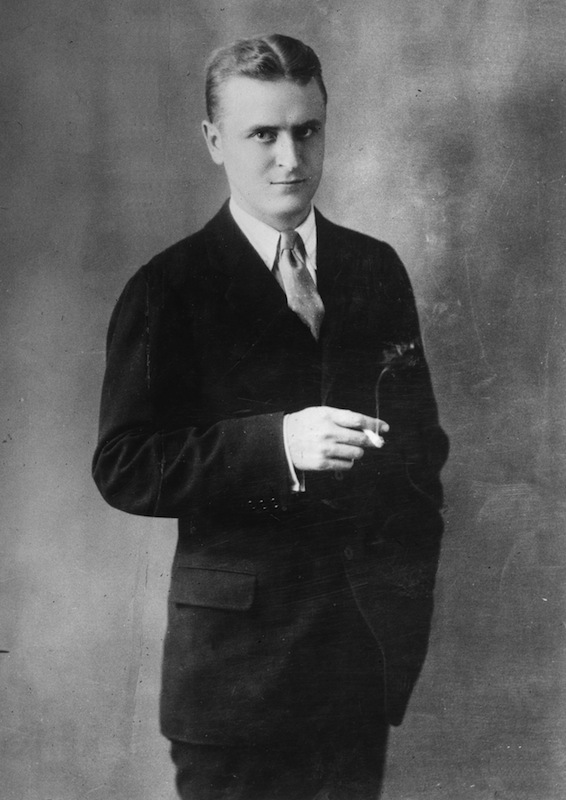
He was the voice of the Jazz Age, although that voice sometimes had to be censored for family publications. Part of what made TIME refer to F. Scott Fitzgerald, in 1934, as the “bad boy of U.S. letters” was his flair for impertinent zingers: he rarely pulled a punch in sizing someone up.
Evidence for this tendency can be found even in the earliest entries of Fitzgerald’s “ledger,” his incredibly detailed account of his life, his publications and his finances. The autobiographical chart begins on this day, Sept. 24, in 1896, when he was born in St. Paul, Minn. The following year’s summary notes that he came down with a bad case of bronchitis. “A specialist was summoned,” he writes, “but as his advice was not followed the child pulled through.”
If he didn’t have something snarky to say, it seemed, Fitzgerald might have said nothing at all. Luckily, thanks to his biting wit and a drinking habit that tended to take the edge off his inhibitions, he always had plenty to say. A few of the most notable targets of his quips follow:
Ernest Hemingway. The two authors were, famously, longtime frenemies. It’s hard to say which of them produced the bitterer barbs. Hemingway was known to have insulted Fitzgerald’s writing, his strength of character, and his masculinity. Fitzgerald, meanwhile, tended to focus his attacks on Hemingway’s qualities as a friend. He once remarked, according to the New York Times, “Ernest would always give a helping hand to a man on a ledge a little higher up.”
Edith Wharton. When The Great Gatsby was published in 1925, Wharton loved it so much she invited 28-year-old Fitzgerald to her French country home for tea. (He, of course, fortified himself with something stronger.) Afraid that the author of The Age of Innocence, then 63, thought him provincial, Fitzgerald tried to turn the tables, and later recalled a conversation that, according to TIME went like this:
“Mrs. Wharton, do you know what’s the matter with you?”
“No, Mr. Fitzgerald, I’ve often wondered about that.”
“You don’t know anything about life. Why, when my wife and I first came to Paris we lived for two weeks in a bordello!” Edith Wharton was interested but puzzled. After a pause, she said:
“But Mr. Fitzgerald, you haven’t explained what they did in the bordello.” Fitzgerald fled the room.
Zelda Fitzgerald. Fitzgerald’s wife was well known for her own snark, and was a frequent target of her husband’s, which came to a head after Zelda published an autobiographical novel, Save Me the Waltz. During a 1933 argument, Fitzgerald called his wife a “third-rate writer” with “nothing essentially to say,” according to the Wall Street Journal. “You pick up the crumbs I drop at the dinner table and stick them in books,” he reportedly told her.
Himself. Fitzgerald was perhaps most acerbic when it came to self-assessment. He freely acknowledged that the gibes he lobbed at others were born from his own insecurities. He once wrote to his friend and fellow novelist John O’Hara, “I am half black-Irish and half old American stock with the usual exaggerated ancestral pretensions… Being born in that atmosphere of crack, wisecrack, and counter-crack I developed a two-cylinder inferiority complex,” per TIME. “I spent my youth in alternately crawling in front of the kitchen maids and insulting the great.”
Read more about F. Scott Fitzgerald, here in the TIME archives: The Jazz Age
More Must-Reads from TIME
- Cybersecurity Experts Are Sounding the Alarm on DOGE
- Meet the 2025 Women of the Year
- The Harsh Truth About Disability Inclusion
- Why Do More Young Adults Have Cancer?
- Colman Domingo Leads With Radical Love
- How to Get Better at Doing Things Alone
- Michelle Zauner Stares Down the Darkness
Contact us at letters@time.com